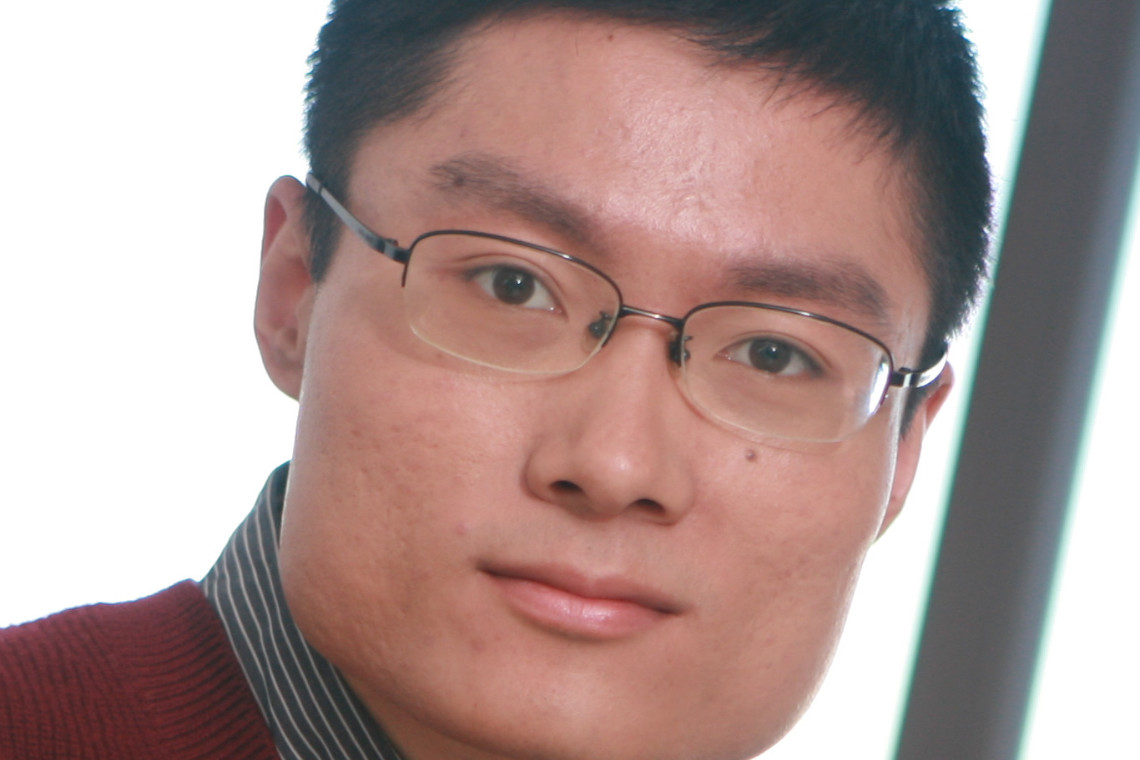Sinica extra: Q&A with Ma Tianjie on toxic heavy metals, bourgeois culture and more
Ma Tianjie, the guest on this week's Sinica Podcast about Chinese public opinion, talks about the roots of his interest in China's environmental problems, pollution in Hunan Province and comparisons between Beijing and Shanghai.

Ma Tianjie is the blogger behind Chublic Opinion, editor of the environmental website China Dialogue, a previous Sinica guest and one of the keenest observers of China’s online discussions about current events. Following his appearance on this week’s Sinica Podcast, he joined Jeremy Goldkorn for a Q&A to share more about his passion for environmental issues, living in Shanghai and Beijing, and the power of public opinion to influence China’s top leaders.
Jeremy: Your undergraduate degree was in English language and literature (at Peking University), but you did your master’s (at American University in Washington, D.C.,) in global environmental policy and then worked at Greenpeace. You’re now managing editor at China Dialogue’s Beijing office. What drew you to environmental work?
Tianjie: Peking University’s campus in the early 2000s was still pretty lively. The legendary “triangle area,” a small patch of land in the middle of the campus with a few weathered billboards where students could paste all kinds of posters to advertise activities and (occasionally) voice their views, was still there. (It was removed a year after I graduated, somewhere around 2005.) While at school, I got exposed to a host of oddball student groups. One of them was the Vegetarian Society of Peking University (or PKU). At that time it was dominated by a bunch of philosophy department students who read Peter Singer and debated about stuff like the source of compassion in Chinese philosophy. I thought it was cool, so I joined. Through the Society, I got introduced to a range of environmental and animal-protection NGOs, which were just starting their work in China. In 2003, then-Greenpeace International Executive Director Dr. Gerd Leipold made a speech at PKU. I was inspired by their work trying to stop developed countries from exporting electronic wastes to developing countries like China. So I decided to join them right after graduation.
Jeremy: How much influence can international organizations like Greenpeace have on Chinese government policy or the behavior of Chinese citizens and companies?
Tianjie: One misconception people outside China often have is that since it’s a one-party state, everything works top-down, command-and-control. What people don’t realize is how that “top” has become increasingly responsive to public opinion. To be clear, I’m not referring to the leviathan bureaucracy in the middle which still largely only answers to commands from their superiors. But the top leadership, either out of the need to maintain the moral legitimacy of the Party or the urge to overcome bureaucratic resistance to some of its own agenda items, seems to understand the importance of responding to and harnessing public opinion. That is the source of “influence” for NGOs and other actors, such as activist-journalist Deng Fei (who advocates for cancer-village victims and children suffering from malnutrition). By focusing public attention on a few high-profile events and stories, they can get the gigantic state machinery to move in a slightly more desirable direction.
Jeremy: I know there’s a huge list of environmental problems facing China, but if you had to name the two most pressing issues facing the country today, what would you say they are?
Tianjie: I just want to use this opportunity to highlight the underreported issue of toxic heavy metal pollution in China. Since we are on the issue of “public opinion” and how the Chinese leadership is getting increasingly responsive to that, this is a classic example of the side effect of that, as nowadays things like lead poisoning or cadmium intoxication often affect poor, rural communities living near mining and refinery sites far from the attention-grabbing urban centers. While Beijing’s smog problem makes national and international headlines, the dying villagers intoxicated by arsenic in mountainous Hunan are silently counting their days. I worked on the issue for a few years while at Greenpeace and have witnessed firsthand how an issue that briefly attracted attention got drowned out after the air-pollution problem took off around 2012. The problem does not disappear. Actually, the properties of those toxic metals make sure that it will persist for years, even decades. But the issue has “disappeared” from public awareness because placating well-off urban residents is seen as the priority.
Jeremy: Do you think concern about the environment is starting to grow beyond NIMBYism and strictly local concerns in China? Are there significant numbers of people who are becoming engaged with environmental issues, even if they do not affect the health of their family and themselves? Is there a generational divide at all between these attitudes?
Tianjie: Interestingly, modern Chinese environmentalism began with a more location-blind, universal care for nature. In the early 1990s, when environmentalism started to become a thing in China, advocates and practitioners were intellectuals, and the early memorable campaigns were about protecting antelopes in the Tibetan plateau and pristine rivers in remote Yunnan. The debates that defined this early period were about whether or not human beings should worship nature, not about whether some factory should be built near my neighborhood.
The street protests by middle-class urban residents against industrial projects that are now branded “NIMBYism” only emerged as a phenomenon at a much later stage, when urbanization had deepened enough. In 2007, the massive, peaceful protest in Xiamen against a planned Paraxylene (PX) plant captured the imagination of observers even though before that, many protests (sometimes violent) against polluting factories had happened in the countryside. The urban protests seem to possess a few unique features that make them potently effective: the participation of well-established middle-class residents, largely reactive and spontaneous in their organization; skilled use of the internet; and well-defined, “reasonable” demands (e.g., cancel a construction plan), all of which make them hard for the government to ignore. But these very features also make it hard to connect with the first brand of environmentalism, which does not speak well to a new social class that seems to value short-term, practical gains over long-term, systemic changes.
Jeremy: In a recent Q&A with The New York Times, Han Han said, “Even if every American website could be accessed here in China, Chinese would be just as nationalistic, or even more so.” Do you think Chinese people would be more nationalistic if there was no Great Firewall? Also: One often hears that the Great Firewall does not actually make that much difference to Chinese people — that their opinions on China and international affairs would not change that much if censorship ended. Does that make sense?
Tianjie: This all boils down to a more fundamental question: How do you cultivate an “informed citizenry” that embraces independent, critical thinking instead of a group mentality? And sadly, this is something that is under threat globally, whether or not you have access to Google or Facebook. If Han Han is referring to more powerful forces that are molding the thinking of Chinese youth today — things like a political discourse that emphasizes vindication more than reasoning, which is enabled by the internet — then I think he is right, although I do think that the access to internet tools (search engines or user-generated-content sites) that give more weight to high-quality information does accelerate the formation of a more informed citizenry.
Jeremy: You grew up in Shanghai but, aside from your time in the U.S., have lived most of your adult life in Beijing. Do you find the cultures of the two cities as different as many people say they are? Do the stereotypes of the citizens of the two cities ring true?
Tianjie: Shanghai’s brand of bourgeois culture is really something that sets it apart from most Chinese cities. It has gone beyond a stereotype and become either a great cultural heritage from which a refined, mild society can be built or a source of pretension and prejudice. Compared to that, today’s Beijing doesn’t have that clear a cultural “mark” and this has a more liberating feel to it. Other than that, both cities are as fascinating and flawed as any Chinese city: ugly buildings, bad drivers and the can-I-get-this-done-today spirit.
You can listen to Ma Tianjie’s first appearance on the Sinica Podcast here: Public opinion with Chinese characteristics.
Ma’s appearance this week on the Sinica Podcast can be found here: Lines of fracture in Chinese public opinion: A conversation with Ma Tianjie.
You can find a list of relevant background reading materials here: Sinica backgrounder: Nationalism, celebrity divorce and murder-suicide: Understanding contemporary China through online public opinion.






